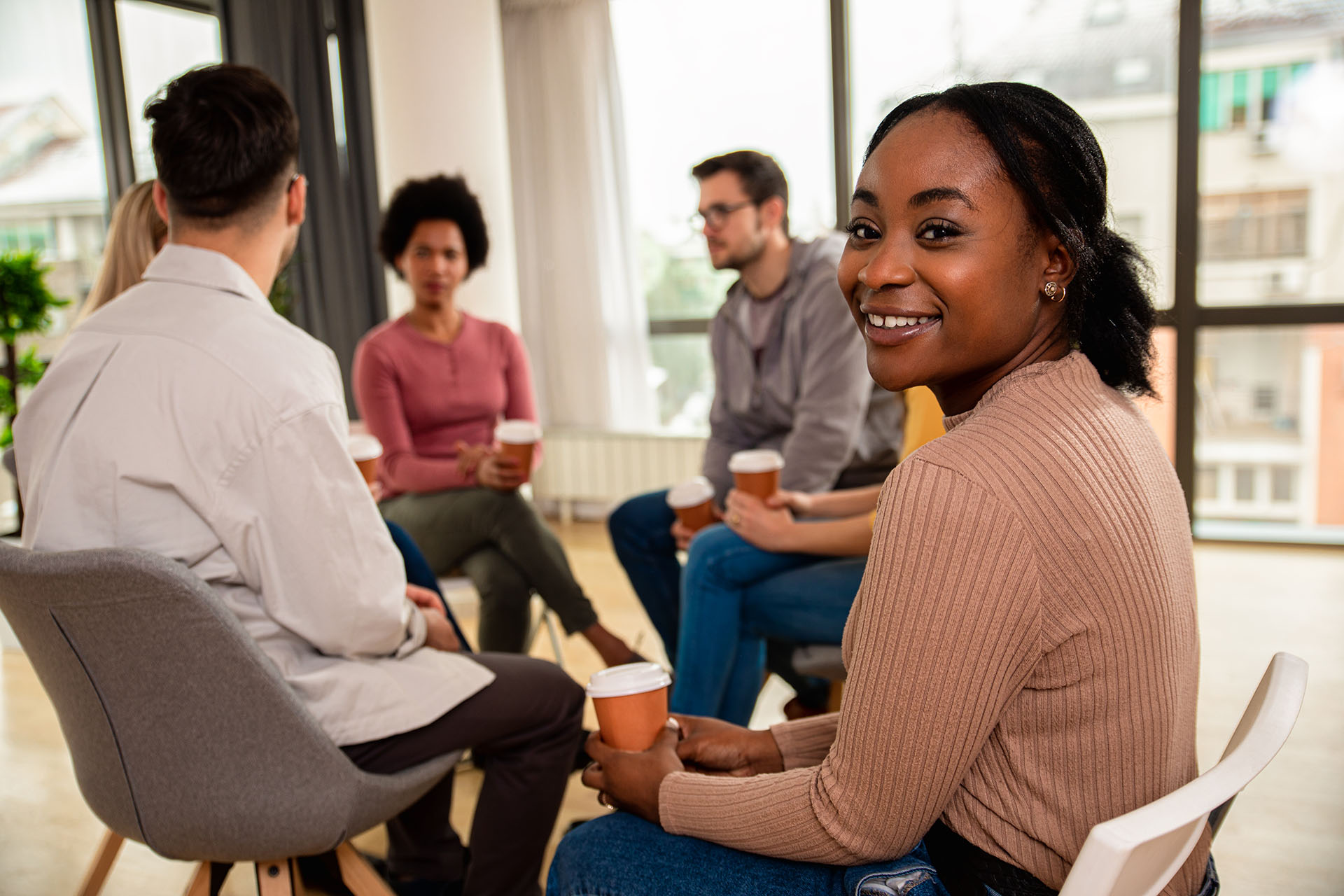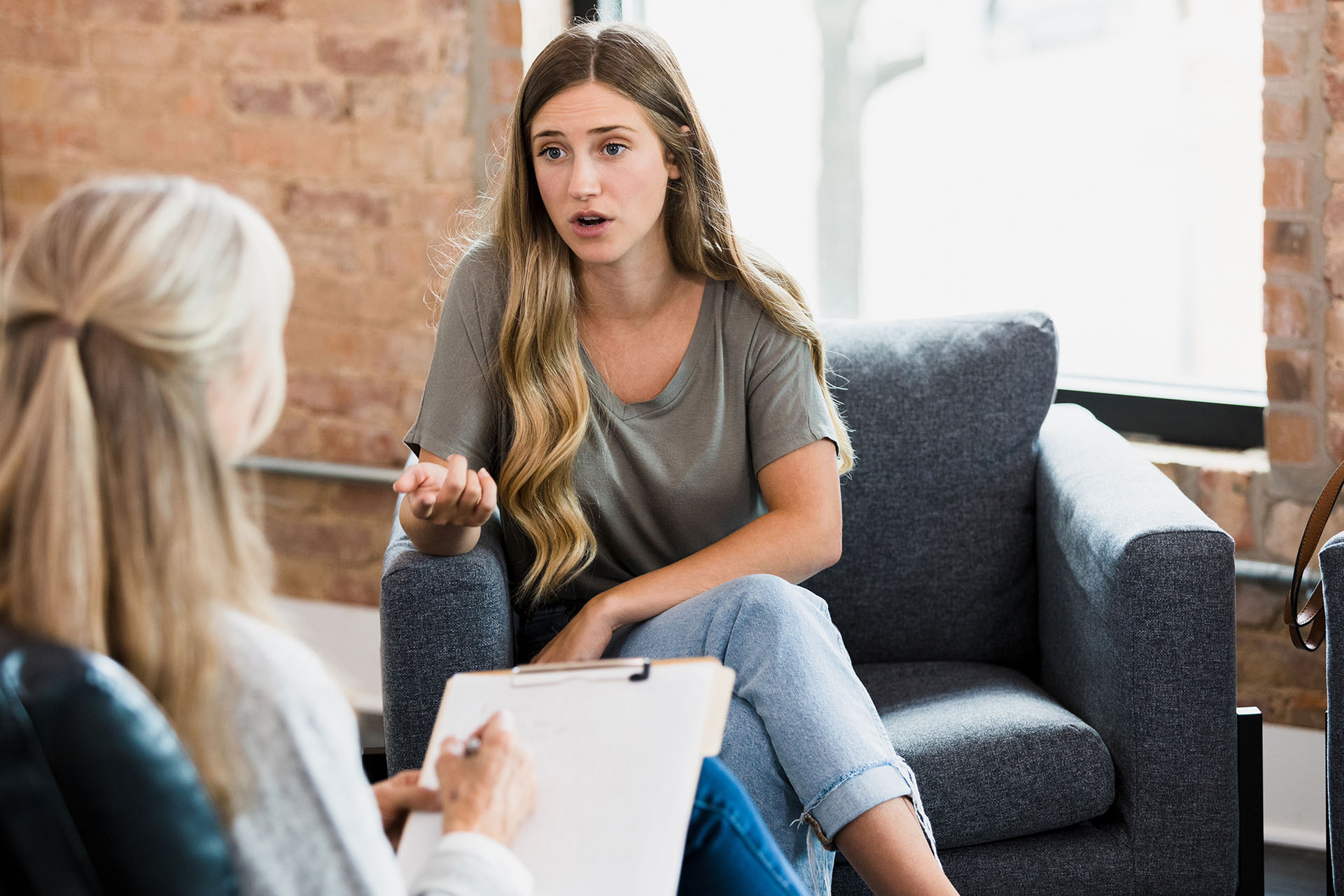Does Drinking Alcohol Cause Anxiety And Panic Disorders?
Alcohol increases the effects of panic attacks and can cause anxiety disorders, as well as an alcohol use disorder.
The Relationship Between Panic Attacks & Alcohol
Drinking causes anxiety indirectly by potentially causing and worsening its symptoms. Effects of alcohol like the lowering of blood sugar, an increase in heart rate, and dehydration can cause a panic attack.1 Alcohol also disrupts the chemical balance in your brain and body, leading to an increased production of serotonin that induces euphoric feelings. However, when you stop taking alcohol and your body’s serotonin levels subsequently lower dramatically, your body will crash.2
Continuing this process over time causes an imbalance of chemicals that your body signals as danger and stress leading to a panic attack. These symptoms happen when you experience a hangover as well, because your body has begun withdrawing from alcohol.

Alcohol and Anxiety: Are they Intertwined?
While alcohol has been linked to worsening anxiety symptoms, many people start drinking alcohol in order to curb anxiety symptoms as well. In either case, it’s important to consult a doctor if you or a loved one notice signs of anxiety disorder or alcohol use disorder.
- Shortness of breath or struggling to breathe
- Heart palpitations
- Blurred vision
- Chest pain
- Sweating
- Trembling or shivering
- Your fingers or toes experience a numbing or tingling sensation
- Feeling very hot or cold
- Feeling sick, dizzy, or faint
Ways That Alcohol Affects The Brain And Increases Anxiety
There are many ways that alcohol affects the brain; these impacts will be detailed below.
Effects On GABA Neurotransmitters
The GABA neurotransmitters help your body stay calm and relaxed. Alcohol acts like a sedative and depressant, increasing levels of GABA and making you feel more peaceful. However, it decreases GABA levels when the alcohol wears off and triggers an exaggerated, overstimulated, and anxious state.3
Drinking causes anxiety by destabilizing GABA levels, therefore leading to worsened panic attacks and withdrawal symptoms.
Effects On Dopamine
Dopamine is a neurotransmitter that sends feelings of pleasure throughout your body. Alcohol influences the reward system to increase levels of dopamine. However, chronic drinking over time depletes dopamine in your system, leading to potential drug cravings and addiction.
When you drink alcohol, dopamine levels are high, prompting you to repeat the same behavior. However, when the alcohol wears off, it elevates the impact of anxiety. This leads to alcohol-induced anxiety and panic attacks.
What Are the Symptoms of a Panic Attack?
Alcohol can cause anxiety and panic attacks, leading to some of the following symptoms:
- Shortness of breath or struggling to breathe
- Heart palpitations
- Blurred vision
- Chest pain
- Sweating
- Trembling or shivering
- Your fingers or toes experience a numbing or tingling sensation
- Feeling very hot or cold
- Feeling sick, dizzy, or faint
Why Does Alcohol Cause Panic Attacks?
- Causes dehydration
- Interferes with hormones
- Can lead to withdrawal symptoms
- Lowers blood sugar levels
- Alters heart rate and impacts the nervous system
Do All Types of Alcohol Cause Anxiety?
Is Anxiety Associated with Alcohol Tolerance and Dependence?
People with anxiety disorders tend to use alcohol to reduce anxiety and stress. An individual with an anxiety disorder is three times more likely to develop an alcohol use disorder than someone who doesn’t. Furthermore, studies also suggest that a genetic link could influence your anxiety levels and alcohol consumption.
Consuming alcohol to relieve stress over time often leads to an eventual tolerance and dependence.
How Long Does Alcohol-Induced Anxiety ("Hangxiety") Last?
Different people will have varying “hangxiety” symptoms. However, they should last no more than twenty-four hours, or at least start to dissipate after this time. In some cases, symptoms of anxiety related to alcohol use disorder may linger for days or weeks.

How to Calm My Anxiety After Drinking?
- Drinking plenty of water during the day
- Eating nutritious foods and avoiding processed or greasy foods. Foods like broth, bananas, or soda crackers help settle your stomach when feeling nauseous as well.
- Getting enough rest
- Trying over-the-counter medications: drugs like ibuprofen can help with headaches and muscle pains.
Can Quitting Alcohol Cure Anxiety?
Quitting alcohol alleviates the intense feelings of anxiety over time. It also reduces the risks of long-term or severe anxiety disorders. Seek treatment to cure dual diagnosis if you find quitting alcohol challenging.
Meditation
Meditation helps you learn to stay focused, calm, balanced, and at inner peace. This balance is beneficial for your emotional and overall wellbeing. Refocusing your attention on something calming enhances your emotional and physical wellbeing.
Calming Exercises
Calming exercises like practicing mindfulness, relaxing your muscles, or breathing, can help you keep anxious thoughts under control. When you begin feeling anxious, try to take a break and do a calming exercise that relieves you.
These calming exercises can vary, from attempting to take part in yoga, calming the vagus nerve with various muscle techniques, or simply taking a break from whatever is giving you anxiety. Hopefully by doing this, your body resets from the anxious feelings it has been experiencing and you will be able to go back to the task at hand.
Journaling
Doctors and therapists highly recommend keeping a journal to help with stress management. Keeping notes lessens distress feelings, reduces anxiety, and increases wellbeing.
How To Stop Alcohol Abuse and Manage Panic Attacks More Effectively
Do not hesitate to seek professional help when you notice adverse effects or onset of alcohol abuse disorders. Seeking anxiety and alcohol treatment ensures that you get the proper physical and mental support to help you recover. Contact Essence Healthcare in order to get the care you or a loved one may need.
Seek the available therapy, including:
An Addiction Treatment Program
Alcohol use disorder treatment plans include inpatient and outpatient rehabs and detox programs. Inpatient rehabs allow you to stay in a residential place away from alcohol risks while getting the proper support and coping strategies for drinking and anxiety. Outpatient rehab allows you to stay at home while attending sessions at the treatment center a few days weekly.
Therapy Sessions
Therapy programs offer a supportive and safe space to explore drinking and anxiety and understand why you abuse alcohol. You can connect with your emotions and learn techniques to manage alcohol use and panic attacks.
Medication
Resources
- https://www.ncbi.nlm.nih.gov/books/NBK570642/
- https://www.health.harvard.edu/mind-and-mood/serotonin-the-natural-mood-booster
- https://dnalc.cshl.edu/view/485-GABA
- https://www.niaaa.nih.gov/sites/default/files/publications/AlcoholDependence_alcoholism.pdf
- https://pubmed.ncbi.nlm.nih.gov/21493958/
- https://www.samhsa.gov/resource/ebp/medication-treatment-alcohol-use-disorder-brief-guide
Questions About Treatment?
We are a patient-first substance abuse and mental health treatment facility located in Los Angeles, California. At Essence Healthcare, we provide different levels of care from detoxification to drug rehab aftercare. Our team is standing by to address your questions. Your call is confidential and no obligation is required.


